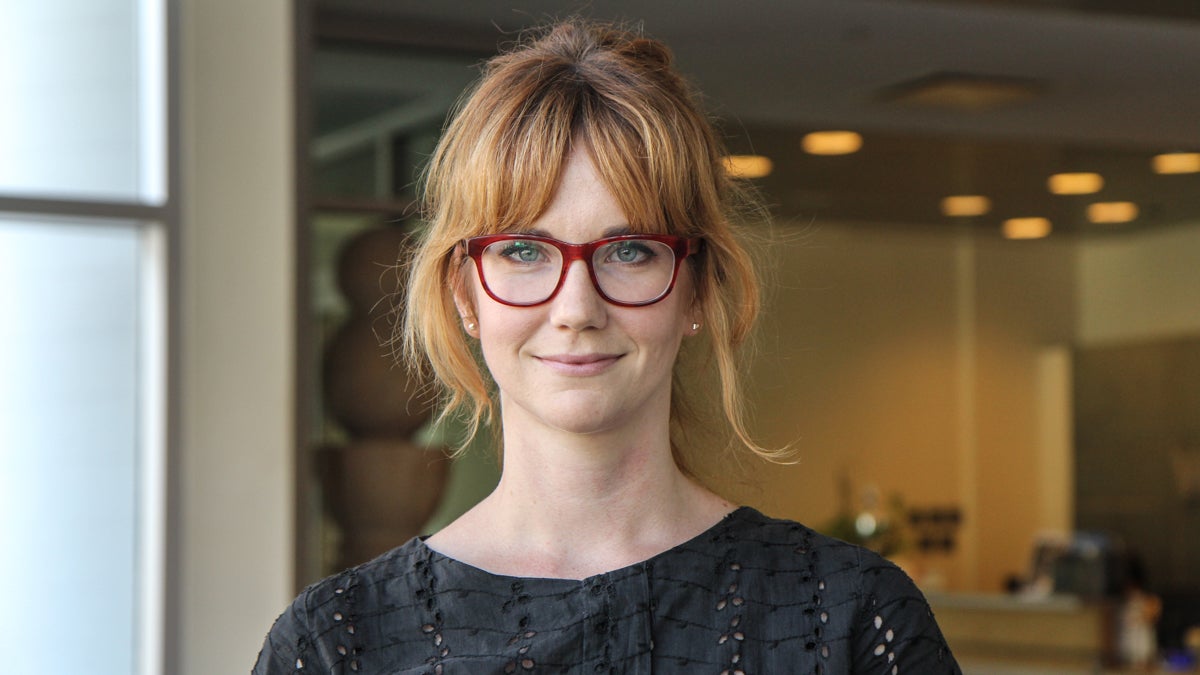Young, smart women are common denominator in successful startups
Listen
Corinne Warnshuis is executive director of Girl Develop It, a nonprofit that helps women learn web and software development. (Kimberly Paynter/WHYY)
What are the ingredients for a successful startup?
Women, youth and decent SAT scores, apparently.
A new report from San Francisco-based First Round Capital lays out “10 Lessons” it’s learned from the company’s first 10 years of investments.
The prominent venture capital firm, which also has offices in New York and Philadelphia, put having women in early leadership positions as No. 1 on its list.
“Companies with a female founder performed 63 percent better than our investments with all-male founding teams,” write the report’s authors.
The importance of gender-diverse teams — and the lack of them — isn’t news to Corinne Warnshuis, executive director of Girl Develop It, a nonprofit that teaches web and software programming to women.
“Over the past few years, we’ve seen more people talking about the issue, more people recognizing that it is an issue … that women are left out of these spaces, and sometimes kept out of these spaces,” she said.
It isn’t about stereotypical female traits, Warnshuis said, but instead the variety of life experiences a woman brings versus her male counterparts.
“It is having that diversity of thought and perspective that will increase your potential to create better products for more people,” she said.
Along with having women involved, First Round also finds it pays to be young. When the average age of entrepreneurs (at the time of investment) is under 25, the companies did 30 percent better.
Another key factor is book smarts: Ivy Leaguers, along with Stanford, MIT and CalTech grads lead more successful companies, according to the report.
First Round pulled its numbers from the performance of 300 companies, though it removed its biggest financial success — ride-sharing giant Uber — from the dataset because it so heavily skewed the outcomes.
“To be clear,” write the authors, “we recognize that our data is still a small subset of the overall market — and (we hope) we’re better venture capitalists than statisticians — but the analysis provides an interesting and unprecedented window into the question: ‘What does a great seed investment look like?'”
After publishing the report, the company may want to consider its own makeup: the seven partners listed on its website are all men.
WHYY is your source for fact-based, in-depth journalism and information. As a nonprofit organization, we rely on financial support from readers like you. Please give today.




